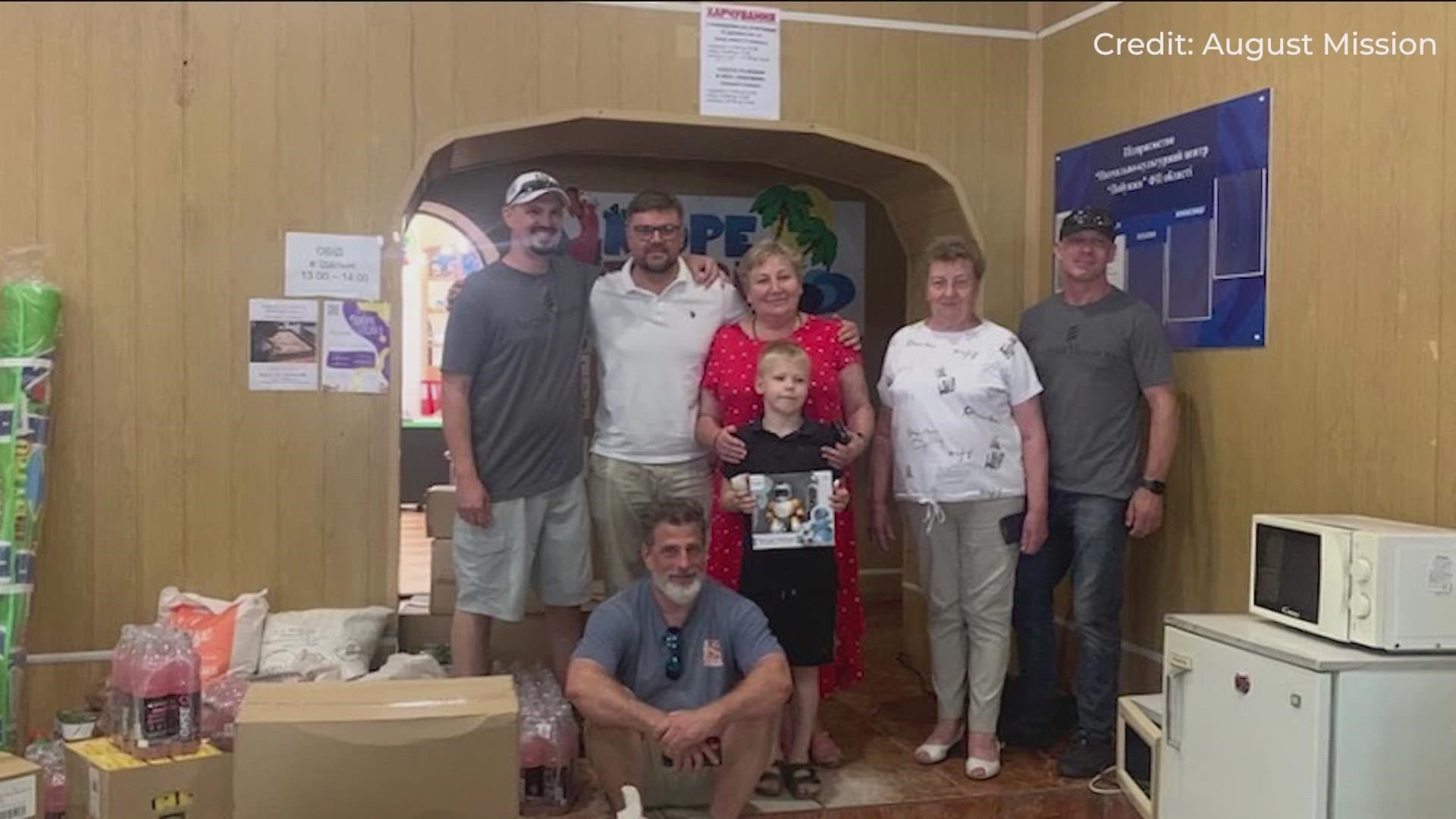BOISE, Idaho — For 128 days, Russian forces have continued their assault on the country and people of Ukraine. Thousands have been killed, thousands more have been injured.
Survivors across the country live in a tense reality, with resources and aid needed to keep going. That’s made possible by volunteers like Matt Gregson, a Physician’s Assistant who calls Pocatello, Idaho home.
“Kind of watching the news and sort of the heartbreaking stories of the families getting displaced from the eastern side of Ukraine and all over and just kind of thought, 'well, somebody should go help them,'” Gregson said.
Gregson did some thinking and decided he was going to offer to go and help. He connected with August Mission out of Utah, a humanitarian-focused non-profit organization.
“About two months ago, August Mission reached out to me and said, 'oh, when can you go?' I was like, oh, geez, I guess this is real," Gregson said. "So, I've been here two and a half weeks, three weeks now."
Over the past few weeks, Gregson worked with other volunteers to load resources onto trucks to get them into Ukraine from a warehouse in Poland.
“Load it up with some of the humanitarian aid supplies, food, blankets, bedding, mattresses, you name it and then we drove across the border,” Gregson said.
Gregson describes his first trip into western Ukraine.
“So, we got into Lviv, spent the night there and then the next day, drove to Khmelnytskyi and that's kind of their hub," Gregson said. "So, we unloaded the trucks into a warehouse there and then that night, they took me over to the children's hospitals, to kind of do a walk through and see what their challenges are and what their needs were."
From that point, Gregson and his team were mobilized to get resources to crucial care centers.
“Next day, we brought a bunch of supplies to the children's hospital. The next day, went to a hospice in the little village south of Khmelnytskyi," Gregson said. "Then the next day, a refugee center, Catholic Church north of Melbourne. The priest there kind of takes care of about 300 people and so this group bring supplies up to them."
Gregson said the work on the ground is impactful and tailored to the needs of those who need drastic help.
“The group found out about a wife, a mother wife who had lost her husband at the front and we went and looked at a house later that day and about an acre and a half a full garden and the house was only $6,000," Gregson said. "So, they just decided, lets just buy her a house and in about four days, they had worked through whatever red tape there was and gave this lady and her children a house."
The scenes we have seen on American television is only a fraction of the reality. An example Gregson detailed, a hospice center caught in a war zone.
“Really hard to watch or to look at and try to figure out what they need. Then just amazing, this young man and his family were taking care of all these people, with a little bit of help from a couple of other people that have been displaced from the Khmelnytskyi area. Really heartbreaking," Gregson said. "So, one gentleman, he had both legs, lower legs have been amputated and he had fastened carpet onto his kneecaps and was dragging himself around on his knees with that carpet around the facility. So, yeah, that was a rough one."
The war continues and the people of Ukraine will need significant help for weeks, months and years to come.
“People that are just absolutely wonderful. [The] kindest, most grateful people and they just wanted the Russians out and want to go back to their lives and be left alone, but it was interesting to get to talk to them, too," Gregson said. "They were all very communicative, very, very smart and fortunately, a lot of them speak very good English. So, it made a lot of that communication easy.
“A lot of these people that I talk to have families back in the east, families that couldn't get out. The soldiers that were in Donetsk or on these rotations where they're up at the front for a couple of days and then they come back and then they get sent back and they again - they just want the Russians out. Who could blame them? They didn't do anything.”
Join 'The 208' conversation:
- Text us at (208) 321-5614
- E-mail us at the208@ktvb.com
- Join our The 208 Facebook group: https://www.facebook.com/groups/the208KTVB/
- Follow us on Twitter: @the208KTVB or tweet #the208 and #SoIdaho
- Follow us on Instagram: @the208KTVB
- Bookmark our landing page: /the-208
- Still reading this list? We're on YouTube, too:

